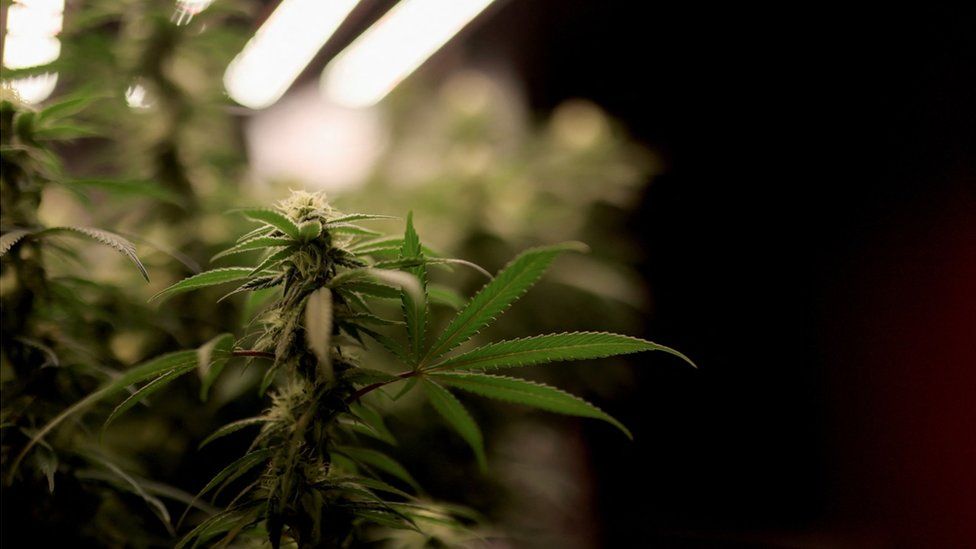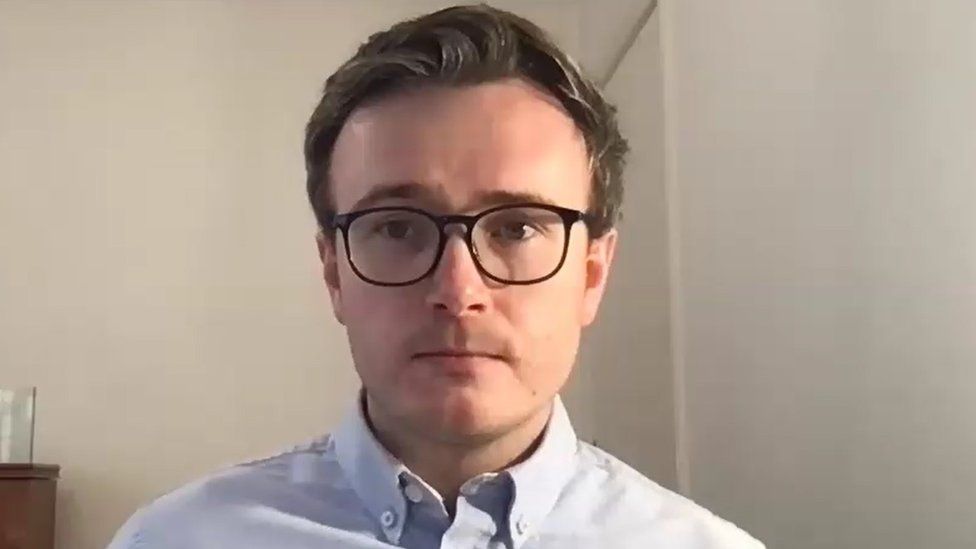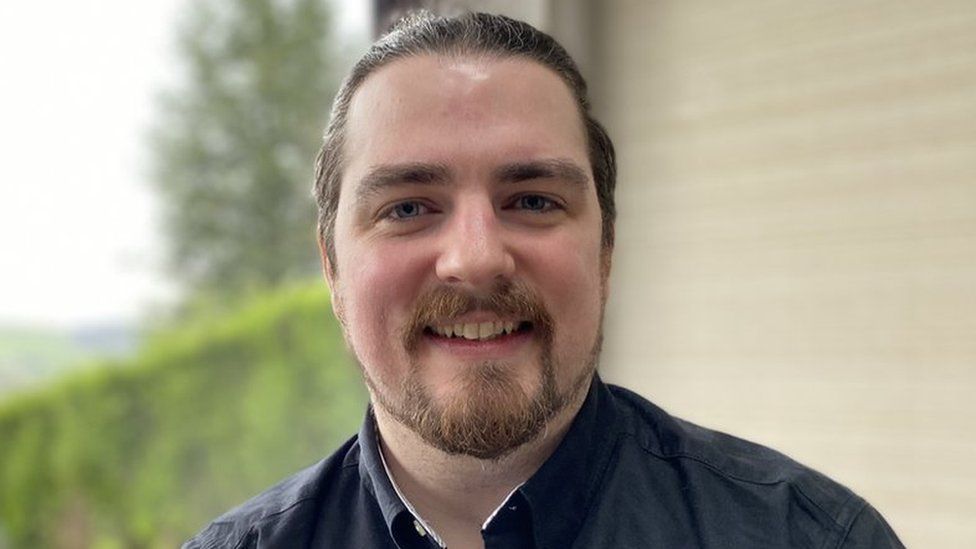
Medicinal cannabis has been legal to prescribe to certain patients since 2018
Cannabis clinics have seen a spike in ADHD patients accessing their services amid a national medication shortage, a BBC North West investigation has found.
One medical cannabis clinic said they had seen a 86% increase in ADHD patients nationally over the last year.
In the North West the number of patients being treated with cannabis at one clinic rose by half in 2023.
Research director Dr Simon Erridge said it was "natural for people to explore other options" amid the shortage.
The Department of Health and Social Care (DHSC) told the BBC while there were no cannabis-based medicines licensed for the treatment of ADHD on the NHS, specialist clinicians "can prescribe cannabis-based products where clinically appropriate and in the best interests of patients".
Before 2018, almost all cannabis-based medicinal products were classed as Schedule One drugs which meant they were judged to have no therapeutic value.
Cannabis products could not be legally prescribed in the UK, and could be accessed only, in rare cases, with a special licence from the Home Office.
Since November 2018 treatments that meet "appropriate standards" have been reclassified into Schedule Two - those that have a potential medical use.
Dr Erridge, of Curaleaf Clinic, said: "A lot of people with ADHD may try a number of different medications to find the one that works best for them, if that is suddenly taken away by shortages it's only natural for people to explore other options and there's no reason why that might not include medical cannabis."

Dr Erridge said clinics like his had carried out research on the effects of cannabis on ADHD but acknowledged there "hasn't been enough high quality data to make medical cannabis available on the NHS".
"We still need a higher quality of evidence for NHS decision makers to be able to say that ADHD is appropriate for people on a population basis rather than on a case by case basis," he said.
What is attention deficit hyperactivity disorder? (ADHD)
- Attention deficit hyperactivity disorder is a condition that affects people's behaviour
- People with ADHD can seem restless, may have trouble concentrating and may act on impulse
- Most cases are diagnosed when children are under 12 years old but sometimes it is diagnosed later in childhood
- However, on other occasions ADHD was not recognised at all when someone was a child and they are diagnosed later, as an adult
Source: NHS England
John Farrar, 34, from Ramsbottom, Greater Manchester, was prescribed medical cannabis for his ADHD just over a year ago and said it had "transformed" his life.
Like anyone seeking treatment, Mr Farrar had to first try traditional medication and therapy before being referred to a cannabis clinic.
"Whenever I have cannabis, instead of having layered thoughts, I'm able to have a one track thought and focus on what I'm doing rather than having a thousand projects on my mind," he said.
"I'd get stressed at myself a lot before and internalise and think negative things as my mind was racing."

Mr Farrar, who provides technology support for disabled students, said he previously self-medicated with illegal cannabis - something which made him feel like "the black sheep of the family".
"Once I was given it legally, the stigma was gone. As soon as I was prescribed it people understood this was not something you do recreationally."
Mr Farrar, who takes the drug four times a day using a vaporiser, said: "I went through school, college and university and I thought I had depression and anxiety, but really it was my mind racing and it was my ADHD.
"Treatment has changed my life, I can now talk to people, I wouldn't have been able to have done that before."
A DHSC spokesman said cannabis-based medicines were routinely funded by the NHS where there was "clear evidence of their quality, safety and effectiveness".
They added the government was taking "an evidence-based approach" to unlicensed cannabis-based treatments to ensure they are proved safe and effective before they can be considered for roll out on the NHS more widely.
From BBC
